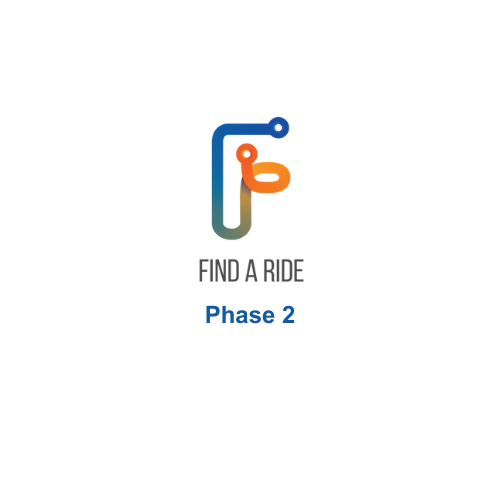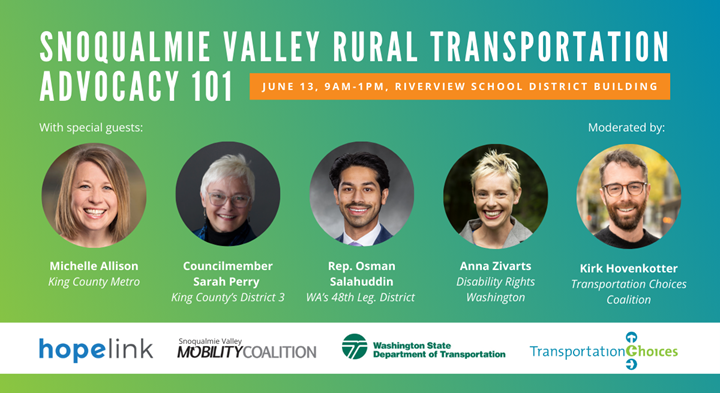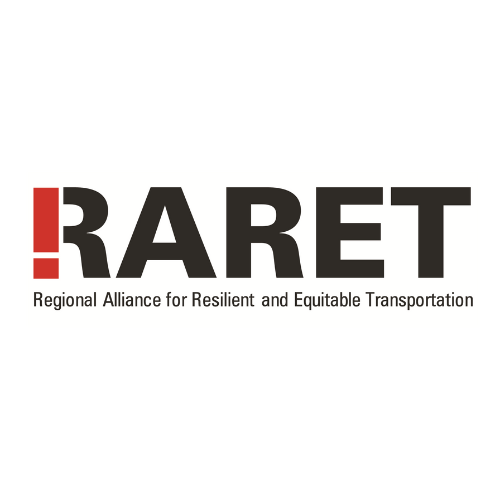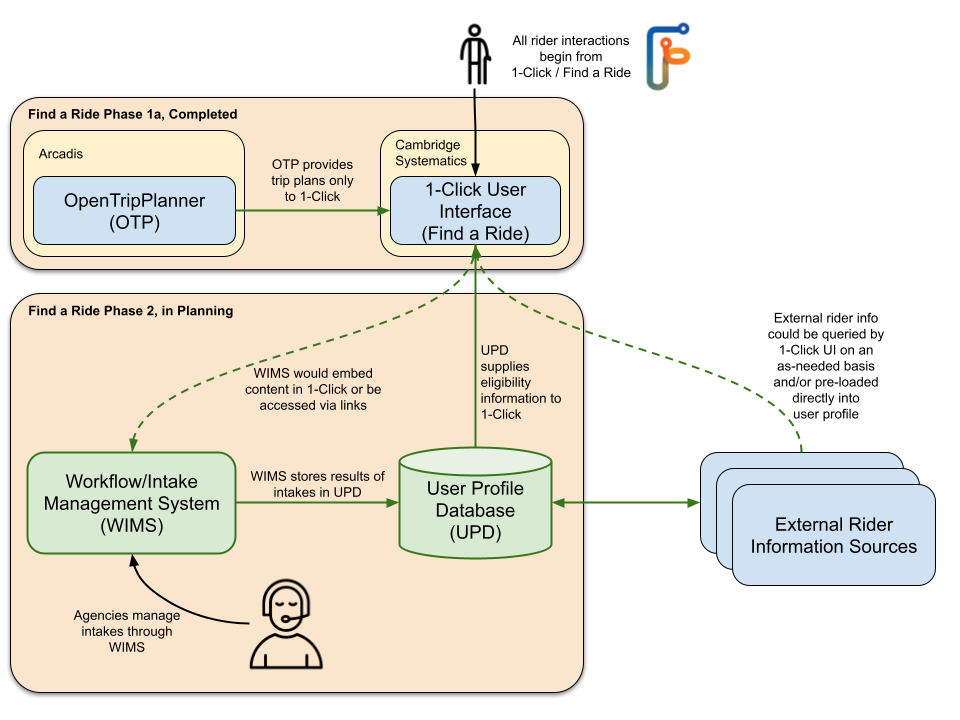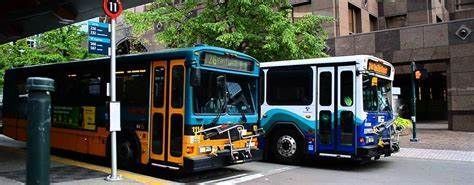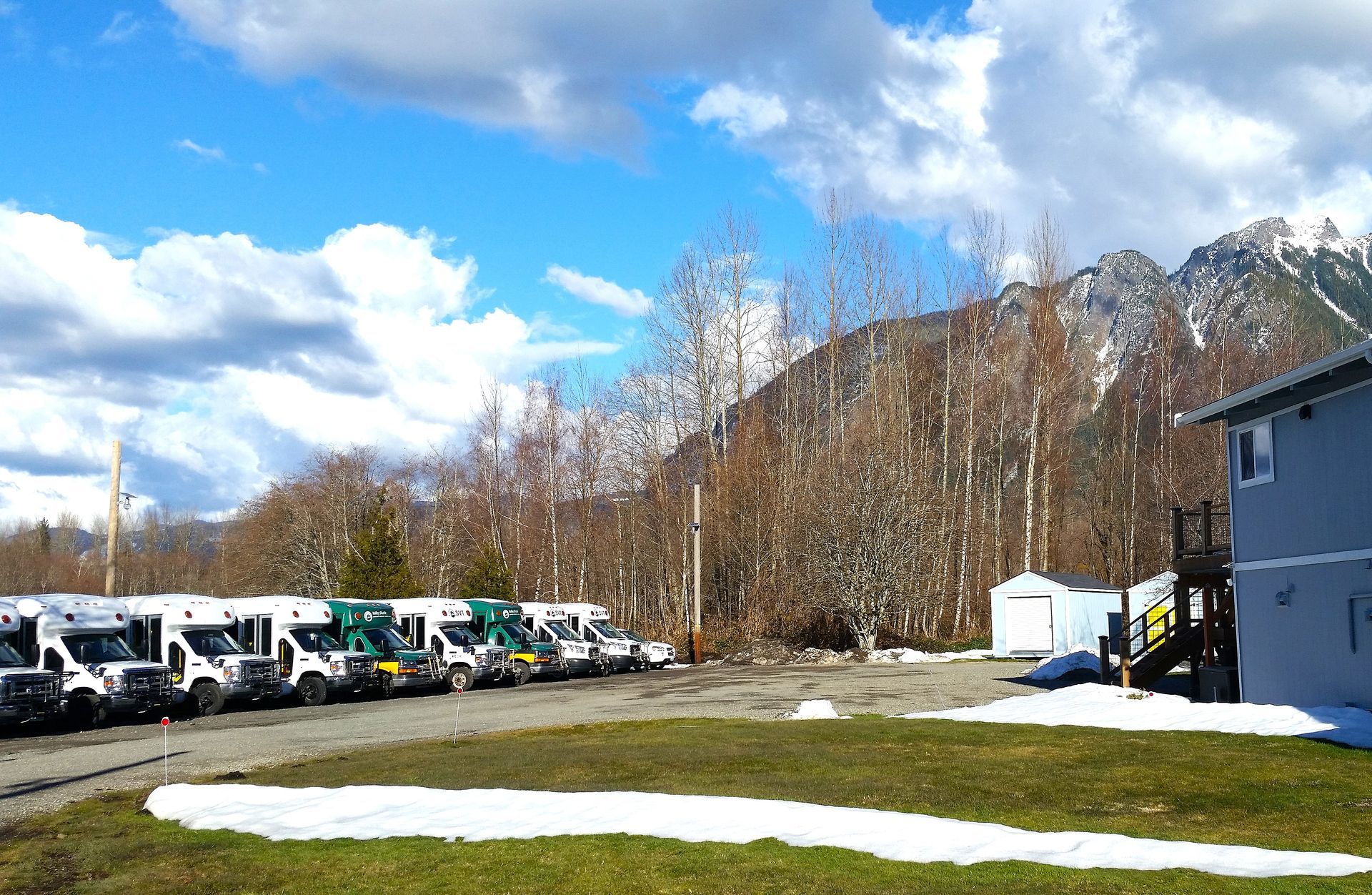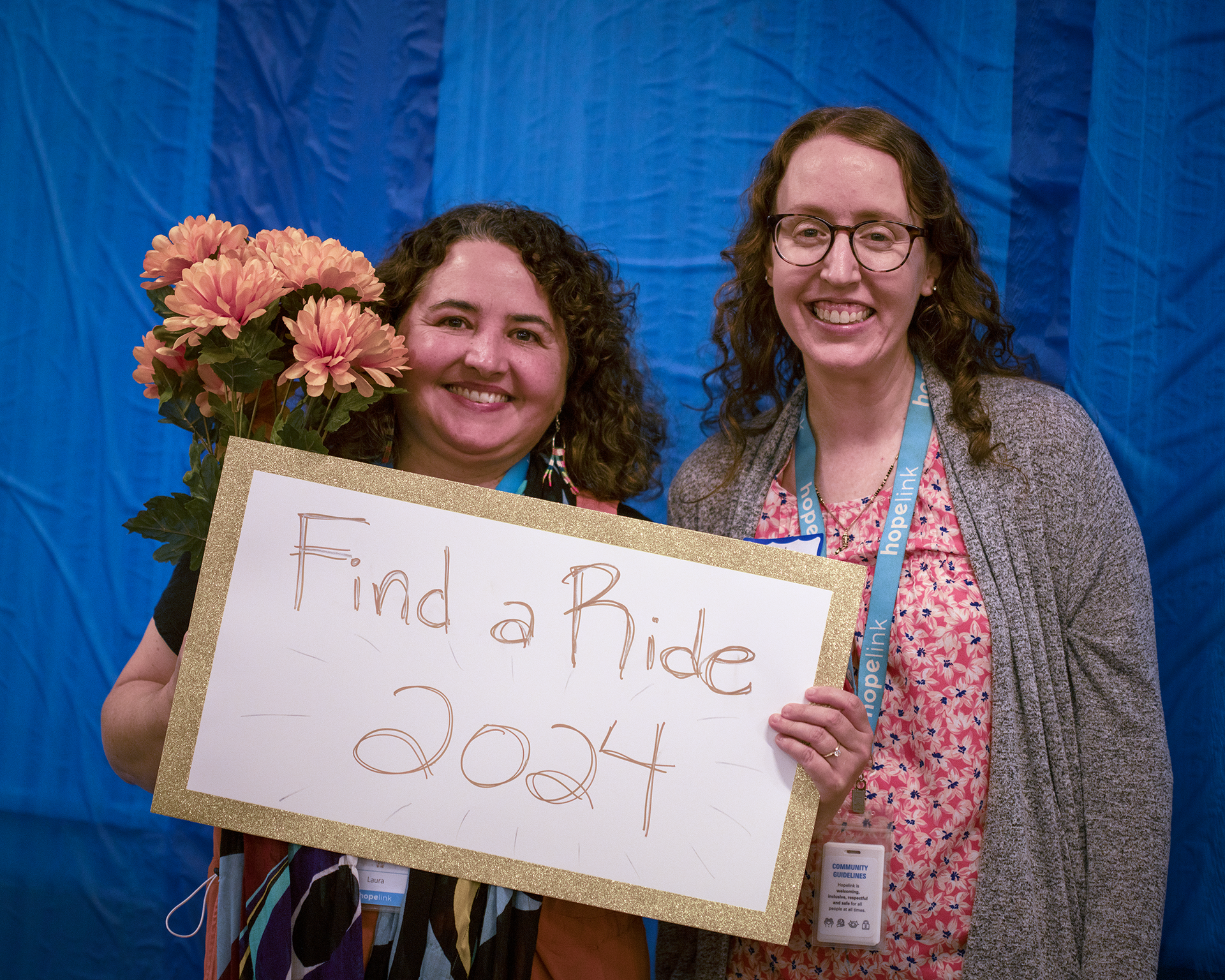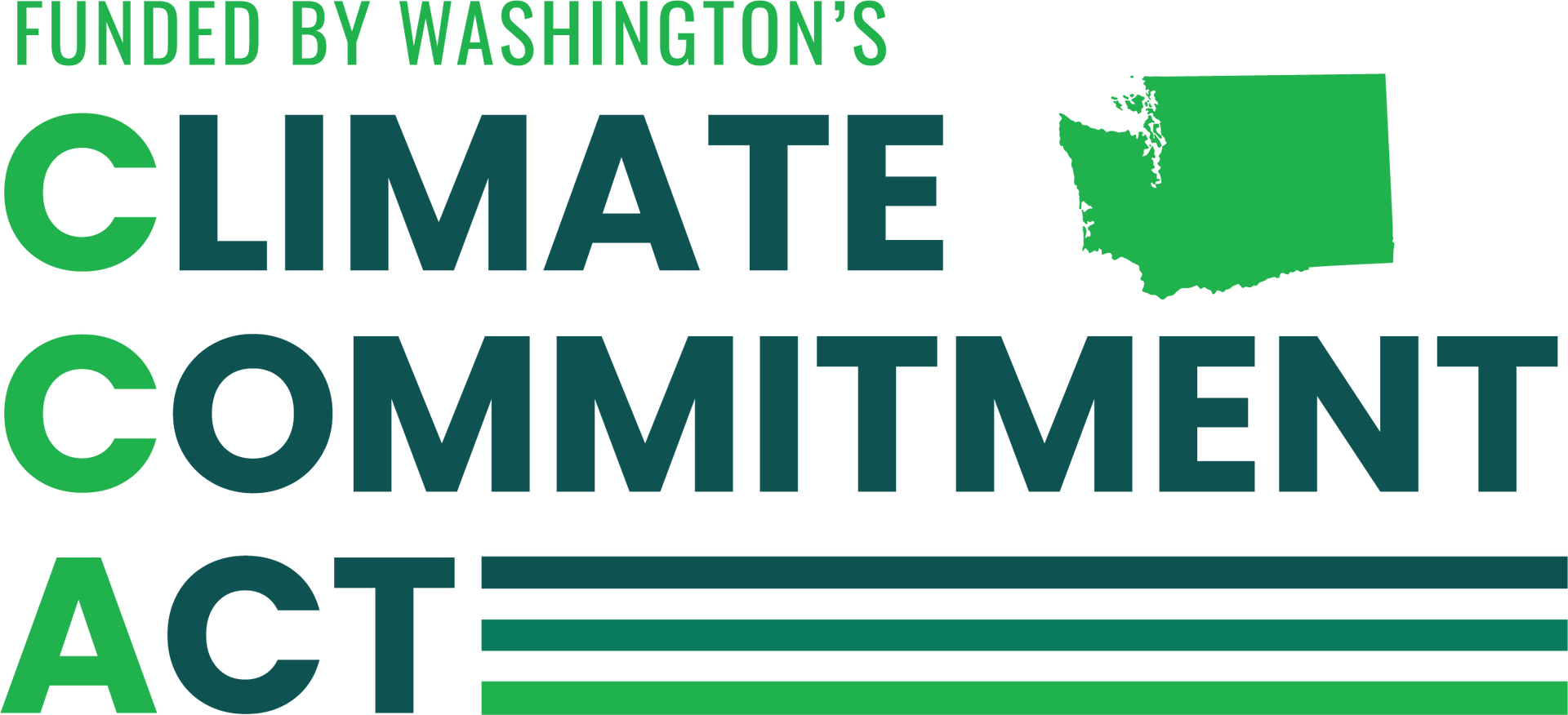Continued Service and Increased Access: King County Coordinated Vaccine Transportation Helpline
October 6, 2021
Story Update
(October 8, 2021)
Transportation remains a critical element to access the COVID-19 vaccine. As boosters become available, we want to remind you and your clients that the Hopelink Mobility team is here to assist with transportation to and from Vaccine appointments.
While some services have changed through the summer and early fall, the Coordinated Vaccine Transportation Helpline
(The Helpline) remains available to assist in gaining access to these critical vaccines. Hopelink Mobility Staff can be available to assist with Pop-up clinics either by scheduling rides in advance or attending the event and helping individuals get home.
This service is available to anyone
who calls. However, for vaccine trips, we often refer to specialized transportation providers who may have specific eligibility requirements. Our staff will listen to your needs and find a solution that fits.
• Current Hours of Operation: Monday – Friday, 8:30 am – 4:00 pm
• Phone Number: 425-943-6706
• Language Assistance: Please state your language in English and staff will connect an interpreter
• Online Intake Form: https://bit.ly/3rcuoIK
If no one answers, please leave a voicemail, and we will call you back as soon as we can. If you call outside of business hours, we will return your call the next business day.
Promotion and resources are available for you to download and distribute in many languages! Coordinated Vaccine Transportation Helpline Flyers:
• English
• Amharic
• Arabic
• Dari
• French
• Korean
• Lingala
• Russian
• Somali
• Spanish
• Swahili
• Tagalog
Continue reading below the dashes for the original post detailing this resource.
___
For many communities across King County, transportation is a constant barrier to getting to their doctor’s appointments, grocery stores and social gatherings. This barrier was made even more complex by the COVID-19 pandemic. Individuals – especially older adults, people with disabilities, people with limited English and members of the BIPOC community – faced some of the most significant barriers. As the COVID-19 vaccine began to roll out in January, it was clear that transportation continued to be an obstacle. Many of the populations most in need of the vaccine were unable to safely and reliably get to their vaccine appointment.
This need prompted Hopelink to think creatively on how to be part of the solution. In addition to launching the King County COVID Vaccine Mobility Task Force, Hopelink created the Coordinated Vaccine Transportation Helpline. This Helpline is a one-stop-shop for finding and securing transportation support to and from vaccine appointments in and around King County. Individuals, caregivers, caseworkers, medical professionals, vaccine schedulers and others can receive individualized support for themselves or the rider they are helping through either an online intake form
or by calling 425-943-6706 (press 5 for language assistance). There is no eligibility criteria, and the ride is free in most circumstances.
This program aims to support communities that are the most vulnerable and need access to the vaccine sites; this includes BIPOC communities, seniors, immigrants, refugees and individuals with disabilities.
“We want to ensure transportation is not the barrier to accessing the vaccine in our community,” says Staci Sahoo, Director of Mobility Management at Hopelink.
The Helpline was launched in late February and is staffed by Hopelink team members who are bilingual in English/Spanish, and staff also have access to interpretation services at the time of the call. The Helpline reservation line is open Monday through Friday, from 8:30 a.m. to 4 p.m. You can also leave a voicemail and get a callback.
The success of this Helpline is because of the incredible partnerships that were created. This includes Sound Generations
(Hyde Shuttle & Volunteer Driver Program), Catholic Community Services of Western Washington
(King County Volunteer Services), King County Metro
(Access, Community Van, Crossroads Connect, Via to Transit), Snoqualmie Valley Transportation, Northshore Senior Center, Puget Sound Educational Service District, Hopelink’s Non-Emergency Medical Transportation, Lyft, and Uber. These partners have stepped up to provide access to transportation to vaccine appointments and provided them at no cost.
The success of this program is highlighted by an older Hispanic couple who called for a next-day trip. English was not their primary language, and they were nervous about riding public transit. They were afraid they would get lost, but they also feared being harassed for being immigrants. Traveling from Kirkland to Seattle with such short notice, options were limited; however, this ride was able to be fulfilled in partnership with King County Metro’s Community Van. In addition, they were able to ride again to receive their second shot.
“No one should second-guess how they will get to their vaccine appointment,” said Sahoo. “We want to put their mind at ease by giving them one less thing to worry about.”
Hopelink is proud to partner with Public Health – Seattle & King County and many other organizations across King County to provide transportation for this critical resource. The Helpline will continue to support the community as long as there is a need, thanks to generous grant partners, including Washington State Department of Transportation, Aging and Disability Services' Community Living Connections, and All in WA’s Vaccine Equity Initiative.
For additional transportation resources, visit: https://www.findaride.org/covid
or call 425-943-6706. A flyer about the Vaccine Transportation Helpline is available in English, Arabic, Chinese, Farsi, Khmer, Korean, Luganda, Portuguese, Russian, Somali, Spanish, Swahili, Tagalog, Wolof, and Vietnamese. For information on the COVID vaccine in King County, visit www.kingcounty.gov/vaccine.
###
About Hopelink
In 2020 Hopelink served nearly 65,000 people in King and Snohomish Counties. Our services are designed to help individuals and families find stability in crisis by meeting basic needs for food, shelter, heat and transportation. In addition, we support people working hard to build a path out of poverty through adult education, financial capabilities classes, help finding a job and family development support through comprehensive case management. Our organization also provides services through a trauma-informed lens, recognizing that the violence of poverty leaves scars, both mental and physical, that have long-term effects on how people perceive the world and choices they make.
Media Contact:
Staci Sahoo
425-625-6856
Mobility News
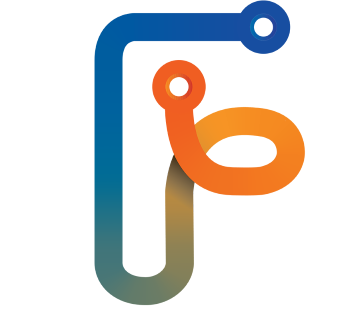
Funding Will Support Find a Ride’s Trip Planner Experience In June 2024, the U.S. Department of Transportation's Federal Transit Administration (FTA) announced the award of funds for a Washington State Department of Transportation (WSDOT) supported program. Find a Ride is a multi-phase One-Call/One-Click project under the supervision of the King County Mobility Coalition and Hopelink’s Mobility Management program. Find a Ride was awarded $519,496 through the FTA's Innovative Coordinated Access & Mobility (ICAM) Pilot Program , with the total funding for the second phase of the project close to $700,000 through regional match support. Hopelink submitted the Find a Ride grant application with matching support from WSDOT, King County Metro, Sound Transit, and Seattle Department of Transportation . With this award, the program will be able to invest in software to significantly improve the user experience for riders. Using a multi-phased approach, the Find a Ride trip planner tool will connect riders to specialized transportation services all in one centralized service, just one click or one call away from their destination. The tool is being developed through an inclusive planning process with input from regional transit providers and advocates from communities most impacted by transportation barriers, such as older adults and people with disabilities. Hopelink is very pleased to receive federal support for Find a Ride, our One-Call/One-Click project," said Susan Carter, Hopelink VP of Transportation "With the launch of our ground-breaking trip planner in March of 2024, we are excited to build on the momentum for Phase 2 of our project." The Federal Transit Administration (FTA) announcement included $7.8 million for 17 projects to improve public transportation for people with disabilities, older adults, and low-income individuals. The ICAM program supports the Biden-Harris Administration's commitment to improving public health, including mental health. Find a Ride received support from the State of Washington Health Care Authority, Congresswoman Suzan K. DelBene (WA-01), Puget Sound Regional Council, Shared-Use Mobility Center, Connect Snohomish County, Snoqualmie Valley Transportation, Pierce Transit, The Taskar Center for Accessible Technology at the Paul G. Allen School of Computer Science & Engineering, Volunteer Services – King County (A Program of Catholic Community Services), Aging and Disability Services, Arcadis, Center For Independence, City of Kirkland, Crisis Connections, Homage, Sound Generations, Indian American Community Services, King County Mobility Coalition, and Pierce County Human Services . Project administrators also received letters of support from dedicated project advisors, including several individuals with disabilities participating in the inclusive design of the project. Learn more about Find a Ride’s roadmap and inclusive planning process on our project website . Learn about the software development of Find a Ride’s innovative trip planner . Since 1971, the Hopelink has provided stability-building programs for people experiencing poverty, immigrants and refugees, and people with disabilities in north and east King County. The agency’s eleven programs work in tandem to fill gaps, supporting each family or individual’s unique needs. These include housing, food assistance, financial assistance, adult education, energy assistance, financial capabilities, family development, Dial-a-Ride Transit, non-emergency medical transportation, and mobility management. *** Read the full FTA announcement for more information. The full text is provided below: Biden-Harris Administration Announces $7.8 Million in Grants to Help Connect People to Health Care and Other Critical Services Thursday, June 6, 2024 The President's Bipartisan Infrastructure Law adds significant funding to transit pilot program WASHINGTON – The U.S. Department of Transportation's Federal Transit Administration (FTA) today announced $7.8 million for 17 projects that will improve public transportation for people with disabilities, older adults, and low-income individuals. The grants support organizations that coordinate public transportation for underserved groups, allowing them to access healthcare, community services, education, and jobs by building partnerships among health, transportation, and human services providers. FTA's Innovative Coordinated Access & Mobility (ICAM) Pilot Program – supported by more than $24 million in funding over five years from the President's Bipartisan Infrastructure Law – increases access for Americans all over the country, with a focus on health and wellness. Today's announcement supports transportation improvements, from designing new trip scheduling technology to buying transit vans, in 15 states. "Transportation is a lifeline that connects Americans to essential services, like health care, and today we're supporting innovative projects to help more people connect to the help they need" said U.S. Transportation Secretary Pete Buttigieg . "These transportation projects, made possible by President Biden's Bipartisan Infrastructure Law, will help people with disabilities, older adults, and low-income individuals access the health services they need." By improving the coordination of transportation to critical services for people who have been underserved in the past, the ICAM program supports the Biden-Harris Administration's commitment to improving public health, including mental health. The program provides an opportunity for older adults and people with disabilities and in low-income communities. "This program supports statewide and regional strategies to help ensure people who are especially challenged in accessing healthcare can reach those critical services,” said FTA Acting Administrator Veronica Vanterpool . "We are pleased to provide resources that help reach into the sometimes-overlooked areas of our nation to ensure no one is left behind." Some of the selected projects include: The Illinois Department of Transportation will receive $1.8 million to design and implement an integrated technology system for trip scheduling and fare collection that will facilitate non-emergency medical transportation trips and interagency passenger transfers. The program will integrate technology enhancements to improve mobility for people in 20 rural counties in southern Illinois through Shawnee Mass Transit, Rides Mass Transit, South Central Mass Transit, and Monroe Randolph Mass Transit. The Central Oklahoma Transportation and Parking Authority (EMBARK) will receive $415,900 to support the expansion of the existing coordinated transportation services through the purchase of two vehicles and associated vehicle technology systems. This project will meet the growing transportation demand for older adults, people with disabilities, low-income individuals, and transit-dependent populations with improved access to social services, education programs, workforce development programs, non-emergency medical treatment, and wellness and nutrition services throughout Oklahoma City. The West River Transit Authority (Prairie Hills Transit) in South Dakota will receive $269,280 to buy a contactless payment technology system that will enhance safety, improve reliability and the rider experience, and make transit more accessible to residents in the Black Hills region. A trip planning mobile app and website will help facilitate intercounty connections and regional service by linking riders with providers for trips across multiple service areas. The platform will improve coordination of services for veteran service organizations, education institutions, healthcare facilities, women’s and homeless shelters, home healthcare organizations, and workforce centers. In response to the Notice of Funding Opportunity (NOFO), FTA received 24 eligible proposals. Projects were selected based on criteria described in the NOFO .









